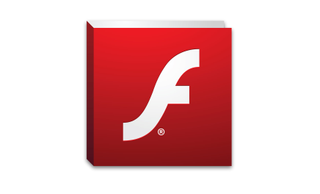Adobe patches ransomware flaw targeting Windows 10
Adobe issues emergency patch for serious Flash flaw

Another week, another Adobe Flash flaw - but this one is more serious than most.
Adobe has rushed out a patch for a zero-day vulnerability that left Windows 10 users at risk of ransomware, saying the flaw is being "actively exploited".
"Adobe has released security updates for Adobe Flash Player for Windows, Macintosh, Linux and ChromeOS," the company said in a security bulletin. "These updates address critical vulnerabilities that could potentially allow an attacker to take control of the affected system."
It advised anyone without automatic updates to manually install the patch.
Paul Ducklin, a security analyst at Sophos, explained in a blog post why the vulnerability was so dangerous.
"The bug allows an attacker to send booby-trapped content to your browser's Flash plugin in such a way that your browser will not only crash, but also hand over control to the attacker in the process," he said.
Infection doesn't require users to take any additional action such as clicking on a button, he noted. "The technical name for that sort of exploit is RCE, short for Remote Code Execution, also known as a drive-by download or a drive-by install, so called because you only need to look at a booby-trapped page to get infected," he added.
Get the ITPro. daily newsletter
Receive our latest news, industry updates, featured resources and more. Sign up today to receive our FREE report on AI cyber crime & security - newly updated for 2024.
Time to ditch Flash?
Ducklin said that he usually recommends trying to do without Flash, uninstalling it entirely or turning it off in browsers.
However, he admits that provokes two responses. "One response comes from people who express surprise that anyone still bothers with Flash at all, because they've done without it for years and can't see what all the fuss is about," he said. "The other response comes from people who say that many of their regular online haunts still need Flash, and who express surprise that anyone would seriously consider getting rid of it."
If you must use Flash, Ducklin advises keeping it up to date and setting your browser to "click to play" so Flash only runs when you give it permission.
The Flash flaw comes as Microsoft follows the lead of rival browser makers by introducing a Flash blocking feature into its Edge web browser.
"With the Anniversary Update to Windows 10, Microsoft Edge will intelligently auto-pause content that is not central to the web page," John Hazen, principal program manager said in a blog post. "We are planning for and look forward to a future where Flash is no longer necessary as a default experience in Microsoft Edge."




